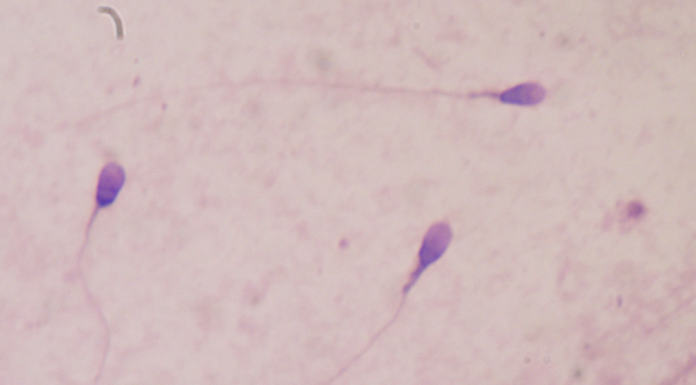COVID can damage sperm for months making it harder to conceive a baby, a new study finds
Reuters – Catching COVID-19 could impact fertility for weeks after recovery from the virus, according to a new study which looked at sperm quality in Belgian patients who suffered symptomatic coronavirus infections.
Semen samples from 35 men taken within a month of their recovery showed a 60 per cent drop in their sperm’s ability to move and a 37 per cent reduction in sperm count.
The study, published on Monday in the Fertility and Sterility journal, took samples from 120 men in Belgium with an average age of 35 years and at an average of 52 days after their COVID-19 symptoms had cleared.
As time since recovery from COVID-19 increased, the quality of sperm also improved.
Samples from 51 patients taken between one and two months after recovery.
“Tests showed that higher concentrations of specific COVID-19 antibodies in patients’ blood serum were strongly correlated with reduced sperm function, the researchers said, which indicated an ‘immunologic rather than a fever-induced causality of the temporary sperm dysfunction.'”
Tests showed 37 per cent had reduced sperm motility and 29 per cent had low sperm counts, falling further to 28 per cent and 6 per cent after at least two months had passed.
The researchers also said they had found “strong evidence” that COVID-19 could not be sexually transmitted through semen after a person had recovered from illness.
However, the Belgian researchers behind the study warned that further work was needed to establish whether or not COVID-19 could have a longer-term impact on fertility.
“Couples with a desire for pregnancy should be warned that sperm quality after COVID-19 infection can be suboptimal,” the researchers concluded.
Brain inflammation caused by air pollution is reducing sperm counts, new study finds:
“The estimated recovery time is three months, but further follow-up studies are under way to confirm this and to determine if permanent damage occurred in a minority of men” …



